Free elections and democracy in Zimbabwe and Swaziland now!
COSATU, SACP, civil society and solidarity organisations to march to
the High Commissions
Friday 7 March 2008 in Tshwane
No one can claim not to know, by now, that SADC is facing a serious
problem, arising from the political and socio-economic crisis facing
the twin-sister countries of Zimbabwe and Swaziland. These countries are
a menace to the spreading trend towards democracy in Africa.
The world has at best lamented and at worst collaborated with the
aggressor regimes of the two countries: the Mugabe and Mswati
oppressors. This is why the new initiative, called the South African
International Solidarity Front, currently convened by COSATU has
taken the bold initiative to confront these two countries and demand
justice for the sister peoples of these countries.
2008 is a year of elections in both countries, with the Zimbabwe
elections to be held on 29 March, whilst the date for the Swaziland
one is yet to be announced, sometime towards the end of the year. But
what stands out clear is that the conditions for elections in both
countries militate against free and fair elections, with political parties
officially banned in Swaziland, and the Zimbabwean people forced to
make choices within ZANUPF-set frameworks.
We shall therefore be holding a march to the High Commissions of the
two countries on Friday, 07 March 2008 in Tshwane (Pretoria), starting at
10h00. This march will bring together all activists and organisations
working for democracy and social justice in these two countries and
beyond.
We call on all progressive peoples of the world to do something now
to end the looming disaster and stop the suffering of our sister peoples
of Zimbabwe and Swaziland.
Zimbabwe -- What went wrong?
In recent weeks the crisis in Zimbabwe has scaled new heights.
It has now become a norm for police to raid the offices of the
Zimbabwe Congress of Trade Unions and of other political activists,
particularly of MDC, harassing, threatening and beating staff, searching offices
and seizing fliers, files and videotapes. They have arrested union
activists campaigning in support of democracy and social justice in the
country.
The government is stopping at nothing to crush the resistance of
opposition parties, civil society organisations and the trade unions
and ruthlessly trample on human rights.
Meanwhile the economy has collapsed. Annual inflation is now around
66000% - the highest in the world, according to latest indicators.
Unemployment is around 80%. Many people survive on grain handouts and
around 28% of the population, many of them highly skilled, have fled
into neighbouring countries looking for work.
There are regular shortages of food, fuel and foreign exchange. Maize
production has dropped to less than half the amount people need to
survive. The government cannot afford to maintain roads and railways.
Average life expectancy is now the lowest in the world - less than
37.The country is among the worst hit by Africa's HIV/Aids pandemic,
with 18% of the adult population HIV positive.
But the underlying social problems of poverty, unemployment and
inequality remained and were made even worse by the IMF and World
Bank-inspired economic structural adjustment programmes (ESAPs),
which eft the government without a coherent economic strategy. To this
were added the unfair terms of trade, which hit all developing countries.
The government began to move away from redistributive economic
policies towards measures to attract foreign investment. Investment in health,
education and other social services was cut. Privatisation and public
service downsizing led to retrenchments.
The government also failed to address the land question, which had
always been at the core of the liberation struggle. The land was
largely in the hands of whites, but for 20 years the government did nothing.
Then, to deflect attention from its growing economic problems, it
suddenly launched its chaotic land grab campaign, to mask its
previous failures and to shift focus from other government failures.
It flagrantly disregarded the law and unleashed a wave of violence by
pro-ZANU-PF hooligans, much of it directed at farm workers. It was
also a well-timed electoral gimmick by a leadership that had run out of
ideas. It became a policy that discredited the whole land
redistribution process.
Meanwhile the government became increasingly heavy-handed, intolerant
of dissent and political plurality, expressed in the tendency to label
anyone one who criticises government as counter-revolutionary and an
enemy of the revolution. The government has ruthlessly repressed the
trade union movement - the mainstay of the forces calling for change.
Meetings and demonstrations have been banned; leaders have been
arrested and beaten and the government has tried to infiltrate their stooges.
Yet it has nevertheless has stood firm against the most intolerable
attacks.
If transformation does not change the material conditions of the
formerly oppressed - replacing white with black rulers - then it is a
cosmetic change. Failure to resolve the pressing issues of the
society leads to disillusionment, disenchantment and a lack of interest in
the
transformation project. The government for a long time failed to
address critical issues facing the masses. But, in Orwellian fashion, turns
up
the revolutionary rhetoric to try to whip up support. It embraces
neo-liberalism one moment, only to discard it towards elections, and
then immediately after the elections readopts IMF-World Bank-type
ESAPs.
Does this mean that it is inevitable that liberation movement
leaders,once they have tasted power, get corrupted and bureaucratised? Is it
inevitable that they become aloof from the masses and talking above
their heads? We do not believe that the bureaucratisation of
democratic movements is inevitable but to keep the democratic movement vibrant
and democratic it must retain its link with the people. There are no
quick-fix solutions for Zimbabwe's economic, political and social
woes,but the key to any solution has to be the broadest possible mass
movement, led by the organised working class, in support of democracy
and human rights.
The aim of progressive forces should be to assist the process of
building unity for the people of Zimbabwe, which should aim to build
a broad-based government of national unity, with a development strategy
focusing on investment in infrastructure, job creation and political
democracy. Having said this, the solution to the crisis in Zimbabwe
must emerge from within rather than imposed from outside. Zimbabwe is
supposed to be going for elections next month, yet there is little to
show regarding an environment conducive to free and fair elections,
let alone the space for the active consolidation of democracy for
development and national stability.
The SADC process, according to the MDC has failed, and has been a
sheer waste of time. We too are not yet sure what concrete deliverables can
be pointed to from this process, let alone the fact that it is not
transparent and all-inclusive for the all-round participation of the
Zimbabwean people, through their democratic representative organs of
civil society.
Why Swaziland has escaped the international human rights radar for so
long?
Swaziland got its independence from Britain in 1968 under King
Sobhuza.
However, this was merely a transfer of power from the British
colonial masters to a neo-colonial monarchy, through which the British sought
to re-establish its domination and exploitation. The nature of this
monarchy was defined the King's 1973 proclamation to the nation:
"Now, therefore I, Sobhuza 11, king of Swaziland, hereby declare
that,in collaboration with my cabinet ministers and supported by the whole
nation, I have assumed supreme power in the kingdom of Swaziland and
that all legislative, executive and judicial powers is now vested in
myself and shall, for the meantime be exercised in collaboration with
my cabinet ministers.
"I further declare that to ensure the continued maintenance of peace,
order and good government, my armed forces have been posted to all
strategic places and have taken charge of all government places and
all public services. All political parties and similar bodies that
cultivate and bring about disturbances and ill-feelings within the nation are
hereby dissolved and prohibited."
This decree laid the basis for the current political architecture,
where politics are the exclusive preserve of the ruling royal elite. In
1978 they introduced a system of called tinkhundla, which sought to
entrench the hegemony of royal supremacy and deepen the semi-feudal and
neo-colonial character of Swazi society. It fragmented Swazis into
competing localities called tinkhundla in the name of "unique and
home-grown democracy", which is directly in conflict with the
universal principles of democracy.
The role of apartheid South Africa was conspicuous in this
development. The Afrikanerbroederbond played a critical role in the proclamation
of the state of emergency in 1973, because it was also threatened by
emerging progressive forces, particularly organised workers. There
was also a steady substitution of British by South African capital, which
plays a critical role in the economy.
The security forces were also largely integrated into the apartheid
security strategy, with open collaboration between the two states
that led to the deaths of numerous cadres of the liberation alliance on
Swazi soil.
The abduction, kidnapping, murder and systematic persecution of
political activists of both the Swazi and South African liberation
movements intensified after the secret 1982 pact between the two
governments, and the 1984 extradition treaty.
The world has conveniently remained silent about Swaziland and
allowed the ruling royal regime to get away with murder. The world remains
silent, after a regime has been allowed to enforce a state of
emergency for more than 34 years.
Amnesty International raised, on several occasions, the issue of
extreme police brutality in Swaziland. Its fact-finding mission's report was
terribly damning on the Swazi security forces. So the situation in
Swaziland has escaped the international human rights and democracy
radar for far too long and there is an urgent need to put it back under the
international spotlight.
Why does the Commonwealth and Britain apply double standards when it
comes to Swaziland? Why does it not apply smart sanctions against the
stubborn regime for refusing to unban political parties and political
activities in general?
Why would the Commonwealth see fit to support and heap praises on a
constitution that entrenches the power of the ruling aristocracy and
to affirm the state of emergency, yet unequivocally demand clear
guidelines for democracy elsewhere? Could this be the reason for the confusing
role of Commonwealth and the British government, including the allegations
that they objected to the application of smart sanctions against
Mswati at the EU level?
Poor people are on the receiving end of the regime's viciousness,
with more and more Swazis being forced to cross the borders into South
Africa in search of jobs, yet the country is well endowed with abundant
natural resources that have become a preserve of a tiny ruling minority.
Finally, the following conditions obtain as regards the royal
elections:
Political parties remain banned, with the exception of the royal
broederbond, which is the only legal political force that has
monopoly over the entire political life of our country as an organised force.
The new constitution of the monarchy, itself a direct off-shoot of
the king's decree of 1973, bans political parties and criminalises all
forms of political activity and the basic rights to associate and organise,
not to mention demonstrations and marches·
It has no power to determine anything that is not in the interest of the
royal family and the monarchy, aside the fact that it is largely
comprised of royalists and their apologists·
The media and judiciary are extensions and auxiliaries of the royal
establishment, independence is a luxury they cannot afford.
Political activists are regularly detained for their peaceful
political activities, which are in anyway, illegal even according to
the new constitution proclaimed by the king recently
Summary of lessons from the two countries:
The paths are different, the scales are uneven, but the effects are
the same - the continued exploitation and oppression of the poor as under
colonialism. The prime lessons from these three comparisons indicate
the following factors:
The political structures of these countries and their post-colonial
configuration vary, but the fundamentals of parasitic accumulation
and growth path.
The elites that drive neo-liberalism in these countries differ on how
they developed, with some emerging from the ranks of anti-colonial
struggles, whilst others were off-shoots of surrogate accommodation
with colonial interests, but they all became fully integrated into the
orbit of global capital accumulation and parasitism as junior partners of
the powerful forces of global capital, transforming them into elites
acting to protect their own interests and those of global capitalism in
general.
Britain as the former colonial power is partly responsible for the
continuing crisis in these countries, cannot just play an innocent
angel or honest opinion-maker on the situation in these countries. In fact,
Britain, through the Commonwealth and on its own accord, plays double
standards, outrightly condemning Zimbabwe, but doing all it can to
protect the Swazi monarchy in Swaziland, though uncomfortably
condemning the recent electoral outcomes in Kenya.
The ideological arsenal of these different elites take different
forms with some of them resorting to patriarchal, narrow semi-feudal values
in the name of culture and tradition, whilst others resort to
anti-imperialist rhetoric blended with revolutionary phrase
mongering.
This is not to undermine instances where, for whatever reason, some
of these forces have really threatened imperialism, but essentially,
they facilitate imperialist accumulation in general. The deployment of
reactionary ideologies to demobilise society and destroy organs of
social revolution and intensified patronage have characterised the
essence of all their approaches.
Finally, they (ruling elites) all are determined to maintain,
whatever the cost in human and other terms, their power and privileges. In
other words, they are prepared to go to any extent to keep themselves in
power. Elections therefore, are an integral part of renewing their
legitimacy and tightening their hold on the whole of society.
Our demands
## The Zimbabwean and Swazi governments must create conducive conditions
for free and fair elections, by:
# Free multiparty electoral contest on the basis of universally
acclaimed democratic principles and standards, as set out in various
international protocols
# Ensuring a free and independent electoral commission runs the
elections, without fear or favour
# Ensuring that all organisations and political parties are able to
canvass their opinions freely and have full access to the media,
judiciary, security and other institutions of society
# Ensuring that all candidates have access to all social institutions
and that the police do not act as a private army of the ruling regime,
but serve all the people equally
## We urge SADC to stop being too accommodative to the machinations and
manipulative tendencies of Mswati and Mugabe, but take serious steps
to demand a clear process without firm timeframes and drastic measures
to enforce all these requirements.
For more information, please phone Bongani Masuku, COSATU
International Relations Officer, on 011 339 4911 or 079 499 6419.
Yes, we were at the Zim Embassy, Pretoria (29/01/2008)

FOR SIX (6) PICTURES OF THE PRETORIA DEMO (29/01/2008) PLEASE CLICK HERE!!!


Are our prayers answered???Tsvangirai now President of united MDC???
"ZIMBABWE’S fractious opposition Movement for Democratic Change (MDC) will announce a unity deal within days while intensifying efforts to woe other significant political leaders in the ruling Zanu PF party and outside into its ranks, officials said.............."
FOR MORE PLEASE CLICK HERE!!!
FOR MORE PLEASE CLICK HERE!!!
Blog Archive
Subscribe to:
Post Comments (Atom)















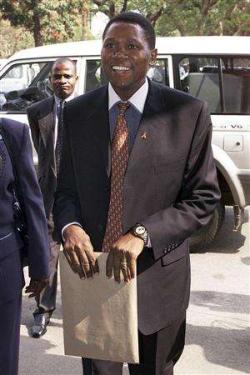
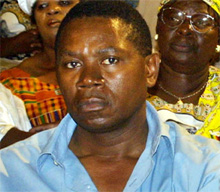


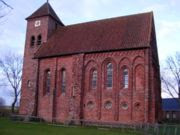






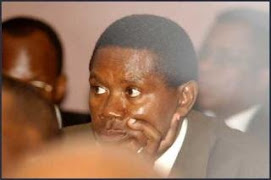
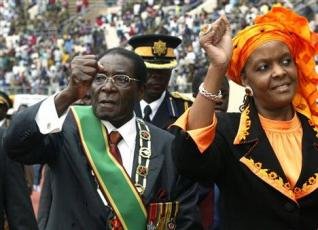
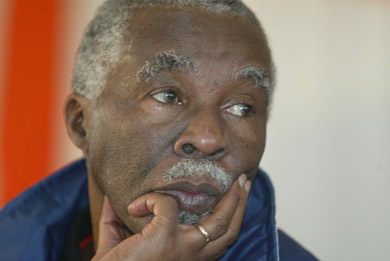
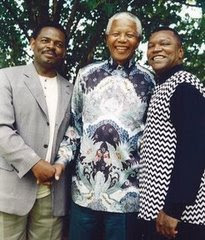
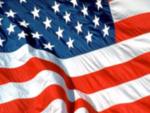
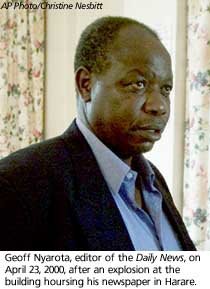

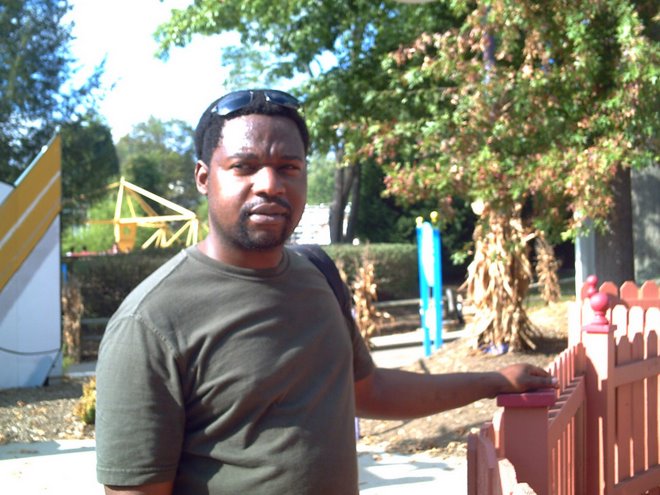



No comments:
Post a Comment